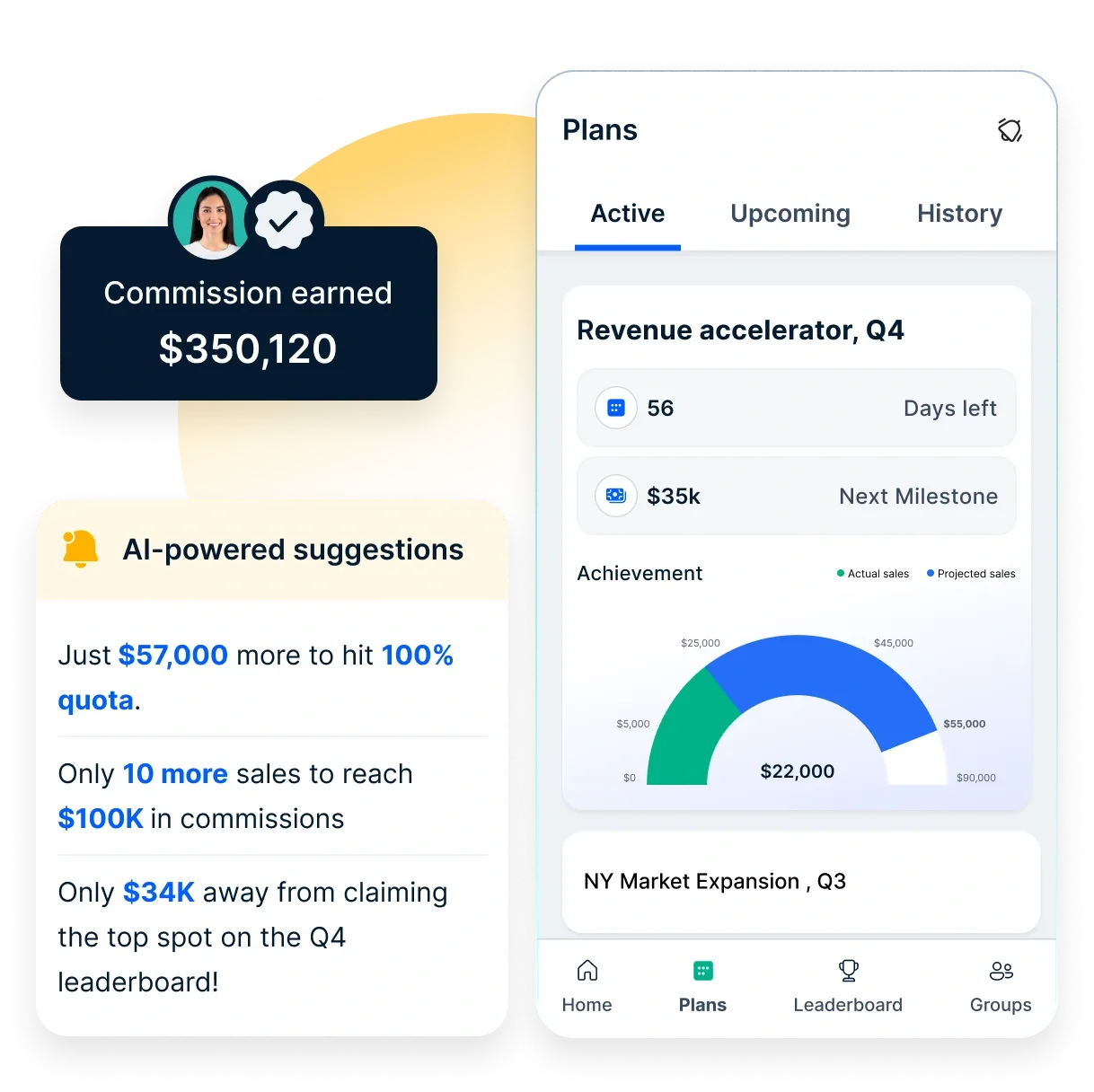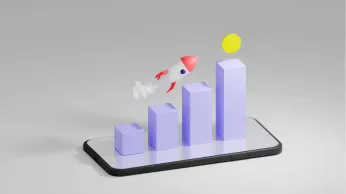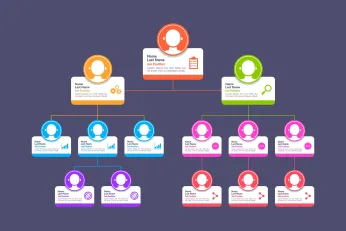On this page
According to HubSpot Survey, 71% of sales associates state their primary concern is to close more deals.
Sales closing is the phase in the sales procedure when the customer or prospect chooses whether to buy a product/service. A closing phrase can be the last strategy a sales rep can use to convince a customer or lead to buy the product.
There are four types of sales closing phrases generally:
- Assumptive: When the sales rep delivers an assumptive close, they use the phrase assuming the sale is over. For instance, "When should I visit you for a complimentary software demo"?
- Urgency: An urgency sales closing phrase involves a limited timeline. For instance, "Our prices change daily depending on market conditions. This price is only for today".
- Option: Using an option closing phrase, the sales rep asks the customer to select between two options. For instance, "depending on your needs, do you think a one-month or three-month subscription is ideal for you"?
- Suggestive: The closing phrase means the sales rep suggests a product depending on their conversation with the client. For instance, "it appears that our premier package is the best fit for you and your business. Do you think the same?"
Why is the sales closing phrase important?
Closing a sale is essential as it is that part of the sale procedure where you're about to convince your lead to commit to your given offer. To reach this phase, a sales rep should possess skills like active listening, negotiation, and overcoming objections to reach the final step, where the client or customer eventually says yes.
A good closing helps you win the sale. Irrespective of your style, it is essential to know the steps involved in closing a deal. It will prepare you to combat all sorts of situations- no two prospects are the same, and you may have to try several closing techniques on various prospects.
To find out which technique is relevant, gaining knowledge about your client's needs and interests is vital before making the sale. Identifying pain points is the key to winning sales, and 28% have a higher chance of closing the sale and hitting the quota.
This is why effective sales closing phrases are designed to ensure you make the deal and bring a protracted sales process to a good end.
Sales closing phrases techniques for 2025
There are several approaches and techniques associated with sales closing phrases. Some of them are given below:
1. Hard closing
The hard closing phrase includes pressure selling. It is when you come out early asking for the sale and consistently aggressively asking even before establishing your product's value. It makes it appear that you only wish to meet your quota.
Hard closing can only be used if you're sure the customer will indeed proceed with the purchase if they find the deal slipping from their hand.
For instance, "I'm afraid if you don't go for the deal today, it will not be available tomorrow."
2. Soft closing
A soft close is a gentle approach to presenting the advantages of a product and gauging a prospect's interest. It involves neutrally presenting the benefits and then asking a low-stakes question to determine their willingness to learn more.
For instance, "If I could demonstrate a reduction in widget maintenance by 25% and an increase in widget productivity by 15%, would you be open to exploring further?" or, "If I shared with you information on how we can lower widget maintenance by 25% and boost widget productivity by 15%, would that align with your company's objectives?"
This method avoids making demands or direct requests and provides a non-threatening way to learn more about their business needs.
3. Assumptive closing
The assumptive close is a powerful selling strategy that leverages the principle of confidence to secure a sale. By acting as if the deal is already done, salespeople create a sense of certainty and foster a positive mindset.
This approach involves closely observing the client's reactions and interests and assuming a positive outcome from the start.
To put the assumptive close into practice, you might ask questions like, "Does this seem to be something your company would need?" After addressing your client's requirements, you could proceed with statements like "When can we start – Monday?" or "When shall we deliver it to you?"
These statements assume that the client is ready to proceed with the sale, creating a sense of momentum and increasing the likelihood of a successful close.
How to write effective sales closing phrases: Tips & tricks
1. Do proper research
Understand your company's offering and your prospect's business nature to present them with the solutions that will work for them. So, conducting profound research is essential throughout the sales process.
Discuss it with your point of contact and other concerned team members at the company's different departments to learn about it deeply. It will give you a better picture of the working of the prospect's company and its needs and preferences. 84% of buyers are likely to purchase from a company that understands their goals.
2. Mark expectations
Remember, not all opportunities get closed. Hence, it is essential to set realistic expectations. Ask your lead questions about their budget, objective, and timeline before offering them your product demonstration or trial.
Once their objective and budget align with your product, you can build a good rapport with them and earn their trust. Remember, different industries have different close ratios. Some of them, according to the industry, are:
- Finance: 19%
- Computers: 23%
- Business and industrial companies: 27%
3. Share a story
Agree or not, storytelling is the best way to cast an impression on a lead. People remember stories more than any information.
As a sales rep, you have a specific time to cast an impression in the closing stage of the sale. Ensure to use it wisely.
Also, do not make irrelevant stories that customers can easily make out. 90% of the decisions are based on emotion and not logic. Hence, a story is an excellent way to tap into emotions.
- Successful and true stories: Share a story about a client who has benefitted from your service. Share how your product has been helpful to their company.
- Personal Testimony: If a prospect shows worry concerning their company's reputation, the competence of the product, or round-the-clock support, provide personal testimony to assure them that they will be in the right hands.
4. Pitch benefits instead of product
Ever heard this, "people don't want to purchase a half-inch drill; they desire a half-inch drill?" Keep this in mind when working with a prospect.
Focus on the benefits of the product. Remember, the lead is not looking ahead to purchasing what you sell; they wish to resolve an issue they are facing. So, whether you're marketing convenience, quality, or anything else, market your benefits.
It will further help you combat a low-cost provider, which is a significant challenge to overcome in this field.
5. Deal with objections
If a prospect raises a concern about your product, address it proactively. Listen to them and answer their objections. Clarify all their doubts and make sure to respond thoughtfully.
6. Move the deal ahead
As soon as you are confident that the solution is apt for the buyer, ask for the sale. Ensure the buyer feels comfortable but communicate all urgencies possible to move the deal ahead.
25 examples of sales closing phrases in action
Making an in-action close is tricky. You need to work your phrase right, so you don't sound too aggressive in your approach. You don't want to create unwanted stress on your lead.
Here are some examples of sale closing phrases in action to help you get the deal ahead:
1. When do you want to start with the implementation?
Like many action phrases, this one is entirely in action, as the prospect will instantly move into action and may respond within a specific timeframe. However, ensure you don't use it too early, or it may erode their trust.
2. When should I get it delivered?
This is yet another well-timed action phrase to help you earn the sale confirmation. However, if the prospect has some questions, answer them peacefully before putting up with this closing phrase.
3. Do you want to go with A or B?
This may be a better action-selling question to ask- it helps measure the commitment they are about to make. In a good situation, they'll immediately close when you ask this. If they haven't decided yet, you will have some concrete numbers.
4. Send me your details so that I may proceed with the paperwork.
If the prospect is prepared to purchase, they will provide you with this information. However, if they aren't ready, they will get in a slightly uncomfortable position explaining why they can't hand over the information to you.
5. Whose name will the invoice be made on?
It is a softer closing phrase than above and will go well with the prospect.
6. If we offer the product at a particular price, would you do business with us?
It is a trick. Once the client answers yes, the rep can meet their objections without any problem.
7. If we could resolve your objections, would you sign the deal?
Doubts kill the deals. Hence, it is important to give customers a commitment that the company can resolve their problem by a suggested time.
8. The product appears to be a perfect fit for your company. Do you think the same?
The question makes potential client consider their reasons for buying your product. Also, it appears genuine instead of prompting.
9. Why don’t you give it a try?
It is a pretty simple question. Rather than making a commitment, you can just allow the prospect to give your product a chance.
10. Would you consider doing business with us?
A direct ask. It is the best closing technique showcasing the firm command of the salesperson over the situation.
11. Ready to move ahead? Should I get the contract?
Well, it is like progressing. If the prospect is happy with your presentation, they will happily sign the contract.
12. You find the A and B features interesting. By starting today, you will be running up at the right date.
It reminds the prospect that the sooner they make a decision, they will have a new solution by their side.
13. Would it be a good recommendation for your next quarter? If yes, I could follow up.
If the salesperson feels that the prospect wants to push the deal for some time. Then this is the perfect closure.
14. Are you satisfied enough to sign the contract today?
Once all the objections are encountered, the salesperson can question this.
15. Have I done sufficient to earn your business?
It is a humble question, where the prospect will answer yes if their objections are dealt with.
16. What’s the best way to get started?
A simple, open-ended question that prompts the prospect to move forward and shows you’re ready to take action.
17. Would you like me to go over the contract with you one last time?
This closing phrase offers the prospect the opportunity to ask any remaining questions, demonstrating your willingness to clarify before finalizing.
18. How does our solution fit with your current goals?
An assumptive close example that encourages the prospect to evaluate how well the product aligns with their objectives. It nudges them toward a favorable decision.
19. Is there anything else I can provide to help you move forward?
A customer-focused approach that shows you’re open to addressing any last-minute concerns before closing the sale.
20. When would be a good time to finalize the details?
This phrasing gives the prospect some control while clearly indicating that the next step is closing the deal.
21. If I could get approval from my team, would you be ready to move forward?
This is a good technique if the decision involves other stakeholders. It frames the decision as imminent once internal approval is obtained.
22. How soon can I send you the agreement?
A phrase that focuses on the administrative next steps, signaling that the deal is nearly finalized and ready for paperwork.
23. Do you feel confident about moving ahead?
This closing phrase is a subtle way to check the prospect’s level of commitment and readiness. It shows you’re ready but want to make sure they’re on board.
24. If we could resolve [specific concern], would you be ready to sign?
Tailored to the prospect's unique objections, this closing phrase shows you’re attentive to their needs and willing to work with them toward a solution.
25. Let’s get you started right away – shall I draft the agreement?
A strong, action-oriented closing phrase that assumes the sale is already made, offering the prospect the final push to commit.
Not just phrases, we believe that closing questions could help you land deals as well.
25 Sales closing questions
You may utilize any one of dozens of questions to close any deal. Making sure they are pertinent to your circumstance and that your timing is appropriate is crucial. Early closing-related inquiries may throw off potential buyers. A chance may be squandered if you put off asking your concluding questions for too long.
But if you take the above actions, you'll be prepared to ask any of the closing inquiries listed below.
1. Can you see how our product/service will meet your specific needs?
2. Do you have any concerns or reservations that we haven't addressed yet?
3. What do you think is the next step in the buying process?
4. How soon would you like to get started?
5. Are there any other decision-makers involved in the buying process?
6. What is the budget you have allocated for this purchase?
7. Do you have any other competing proposals on the table?
8. What is holding you back from making a decision right now?
9. Can you think of any reason why this solution wouldn't work for you?
10. Would you like me to walk you through the steps required to get started?
11. What are the top three features or benefits that you find most appealing about our product/service?
12. What would it take for you to be confident in moving forward with this purchase?
13. Do you have any concerns about our company's reputation or the quality of our product/service?
14. What would happen if you don't make a decision to move forward with our solution?
15. Is there anything else you need from us to help you make a decision?
16. What are the consequences of not solving this problem for your business?
17. Can you think of anyone else in your organization who could benefit from our solution?
18. What is the timeline you have in mind for implementing this solution?
19. Are you comfortable with the investment required to get the results you're looking for?
20. How would your business benefit if we were able to solve this problem for you?
21. What additional information can I provide to help you make your decision?
22. How does our solution compare with what you're currently using?
23. What would make you feel comfortable signing the agreement today?
24. If we could offer a solution to [specific challenge], would that make this an easy decision for you?
25. Is there any reason you wouldn’t want to take the next step with us today?
These sales closing questions can help you identify any objections or concerns the prospect may have and address them. They can also help you move the prospect towards a final decision, overcome any barriers to the sale, and close the deal. It's important to use these questions in a conversational and natural way that fits with the tone and flow of the sales conversation.
Post deal tips
Here are some tips to follow after closing the deal:
- Log the deal in your software: Believe us, your sales leader will be grateful to you. Logging your deal will keep your team updated.
- Offer an introduction to the following department: Closing the deal is one part of the customer journey with your company. They have been onboarded. Ensure you introduce them to the following department for a smooth transition.
- Follow-up with them: Check in to see if your customer feels good about their purchase. It will help you win their trust and loyalty. If any issue arises, ensure to address it immediately.
Accentuate the effects of closing deals with Compass
Compass could play a significant role in accentuating the sales closing process. Here's how it can contribute:

Gamification: Compass provides gamification elements that can drive healthy competition among sales teams. For example, setting up rewards for sales reps who close the most deals or who move a prospect the furthest through the sales funnel could be an effective motivator.
Rewards & recognition for milestones: You can set up milestones in Compass (e.g., completing a certain number of successful closes or getting positive feedback from customers). These milestones can then be tied to rewards and recognition, keeping sales reps focused on achieving and exceeding their sales goals.
Personalized incentives: Compass allows for tailored incentive programs that can target specific behaviors, such as closing deals faster or overcoming difficult objections. Personalized incentives might be what sales reps need to push through objections and confidently close deals.
By integrating Compass into your sales closing process, you create a more engaging, performance-driven environment that motivates your team, helps track progress, and ensures successful deal closures. Schedule a call now!
Wrapping up
Closing a sale is the ultimate goal of any sales pitch, and the way you ask your closing questions can make all the difference. There are different sales closing techniques, such as the assumptive close, the trial close, the urgency close, and the choice close, or closing questions for assertiveness. Choose the one that best fits the situation and the prospect.
With the right sales closing phrases and the right questions, you can increase your sales and grow your business. So, use these questions as a starting point, adapt them to fit your unique situation, and see how they can help you close more deals and achieve your sales goals.
FAQs
1. What is an assumptive close?
An assumptive close is a sales technique where the salesperson assumes the buyer is ready to purchase and moves the conversation forward by asking questions that imply agreement, such as, "Would you like me to arrange delivery on Monday?" This method helps maintain momentum and confidence in the sales process.
2. How do you close a sale phrase?
To effectively close a sale, use phrases that assume the buyer's agreement. For example, instead of asking if they want to proceed, you might say, "When would you like this delivered?" This approach guides the customer towards finalizing the transaction without directly asking for their commitment.
3. What is the best closing line?
The best closing line often depends on the context, but a strong example is: "Let's get started on this today; when would you like to begin?" This line assumes readiness and encourages immediate action.
4. How do you close sales quotes?
To close sales quotes, you can use phrases that reinforce the value of your offer while prompting action. For instance, saying, "I'll send over the contract for your review today; does that work for you?" helps facilitate the next steps in the process.
5. How to close sales like a pro?
To close sales effectively:
- Understand your customer's needs: Listen actively and address concerns.
- Use assumptive closing techniques: Frame questions that imply agreement.
- Create urgency: Highlight limited availability or time-sensitive offers.
- Follow up confidently: Reinforce your belief in the value of your product or service.
6. What is an example of a closed question in sales?
A closed question in sales might be: "Would you like to proceed with this order?" This question requires a simple 'yes' or 'no' response and helps gauge the buyer's readiness to commit.
7. What is a closing question in sales?
A closing question is designed to elicit a decision from the customer. Examples include: "Are you ready to move forward with this purchase?" or "Can I go ahead and schedule your delivery for next week?" These questions aim to finalize the sale.
8. What are the 5 W questions in sales?
The 5 W questions in sales typically refer to:
- Who - Who is the decision-maker?
- What - What are their specific needs?
- Where - Where will the product be used?
- When - When do they need it?
- Why - Why are they considering this purchase?
9. What is a good open-ended question for sales?
A good open-ended question for sales could be: "What challenges are you currently facing that we can help solve?" This encourages dialogue and allows the salesperson to understand customer needs better













